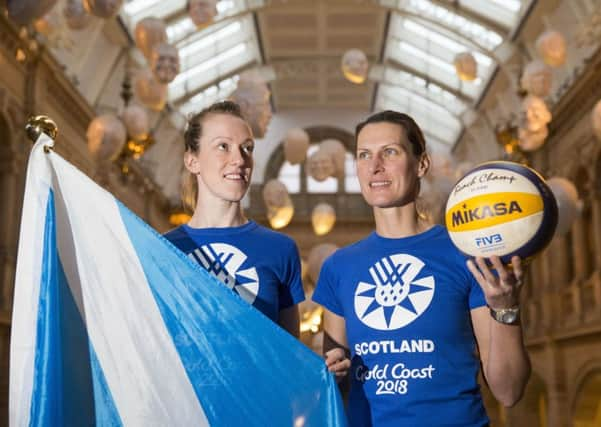Lynne Beattie and Mel Coutts - barnstorming Scots on Gold Coast beach


In warmer months, they traverse the globe in search of competition but make do, while at home, with honing their craft on the wind-swept courts by the seaside of Portobello. Yet says, Beattie – the captain of the British team at the London 2012 Olympics – there are obvious limitations involved. “You can be as willing as you want to train in our conditions but if you got to the beach and the sand is frozen hard, you just can’t train.”
The ideal would be a permanent facility indoors, like the one now open in Bournemouth. In the meantime, the alternative has been constructed here almost from scratch. “One day,” she recounts, “we heard from a local farmer that he had some space in the barn and as long as he had enough room for his tractors to get in and out, we could have the rest. It’s been great. It’s still freezing – sometimes it feels colder in there than outside – but the sand stays the same.”
Advertisement
Hide AdAdvertisement
Hide AdNewly-returned from Florida, the pair have grown fond of their makeshift base. Attachments have been made, relationships forged. “One of the locals comes over in her wellie boots and gives us soup when we’re training,” Coutts declares. Sandra has become an affirmed fan. “She’s in her 50s but she’s always asking when we’re coming and if we need coffee. She says ‘I can’t do much for you but this is the support I can offer’. We’re really grateful.”
Once harvest arrives, the sand will be displaced by necessity. To a local school, Beattie hopes, where it might cultivate a legacy. The indoor game, six-a-side, has traditionally been more popular. “But there is an appeal to the beach,” Beattie notes. “You can dive about in the sand in sunny weather. And there’s that outdoor element that makes kids want to try it. In my role as development officer, I’ve noticed an influx of new kids who want to try beach first. That can only grow.”
First, to gain attention with their performances Down Under. “A bronze medal isn’t beyond possibility,” Coutts forecasts. Then to capitalise on any interest generated. “It’s the big picture as well,” her colleague adds, “not just getting to the Commonwealth Games by showcasing our sport to make it bigger. If we can get Sandra and all her pals excited about the sport when they didn’t know about it before, that can only be a benefit.”